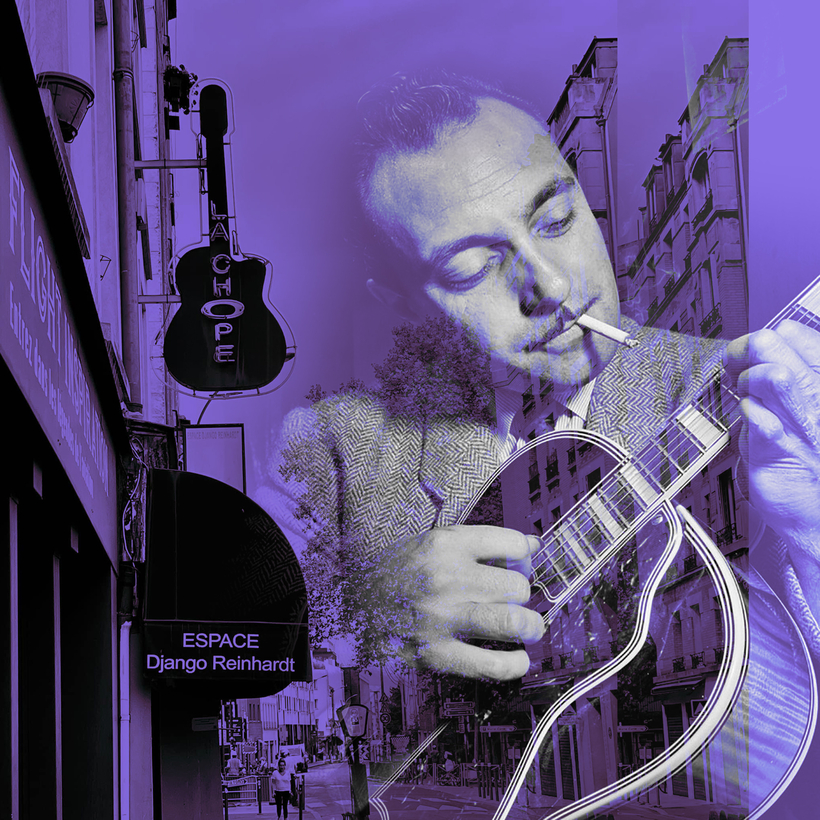It’s 1934 at the Hôtel Claridge, a nightclub on the Champs-Élysées. Backstage, a young guitarist by the name of Django Reinhardt is leading an impromptu warm-up set.
In a departure from the standards, Django weaves together popular Parisian Musette tunes with the Romani string rhythms he grew up with and some jazz licks he’s been listening to. Word begins to spread about these backstage sessions, and eventually this becomes the show itself.


